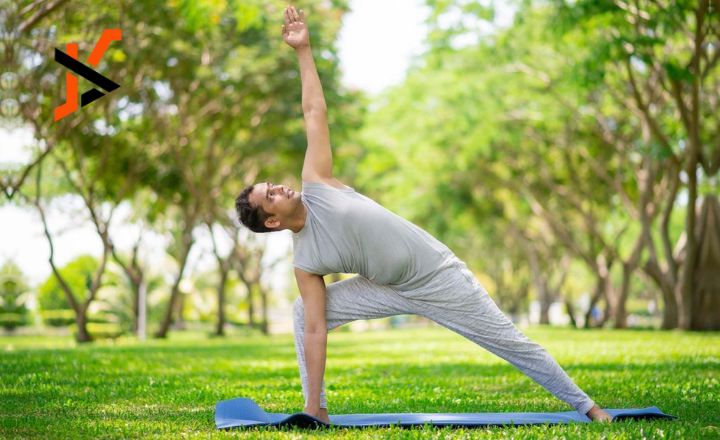Yoga has transcended its origins as a physical practice to become a comprehensive lifestyle that fosters mental, emotional, and spiritual well-being. At its core, yoga is about discipline, an integral aspect that not only enhances physical abilities but also cultivates a deeper connection with oneself. In this article, we will explore the profound relationship between yoga and discipline, illustrating how the practice can transform lives by instilling a sense of commitment and purpose.
Read More: Why Mental Fitness Is So Important for Students and How Yoga Helps With It
Yoga and Its Disciplines
Yoga, derived from the Sanskrit word “yuj,” means to unite or join. It is an ancient practice that encompasses various physical postures (asanas), breath control (pranayama), meditation, and ethical considerations (yamas and niyamas). The multifaceted nature of yoga requires discipline in several forms:
- Physical Discipline: Mastery of yoga postures demands regular practice and dedication. As practitioners learn to align their bodies, they develop not only strength and flexibility but also resilience. Each pose challenges both the mind and body, encouraging individuals to push their limits gradually.
- Mental Discipline: Yoga teaches focus and concentration. The practice of mindfulness during yoga sessions helps individuals cultivate awareness of their thoughts and emotions. This mental discipline extends beyond the mat, enabling practitioners to manage stress and enhance their cognitive abilities in daily life.
- Emotional Discipline: Through meditation and breathwork, yoga encourages emotional regulation. Practitioners learn to observe their emotions without judgment, fostering resilience and emotional intelligence. This aspect of discipline is vital in navigating life’s challenges with grace and composure.
- Spiritual Discipline: Many yogis view their practice as a spiritual journey. This requires a commitment to self-exploration and growth. The discipline of setting aside time for meditation and reflection helps deepen one’s understanding of purpose and connection to the universe.

The Synergy of Yoga and Discipline
Read More: The Health Benefits of Hot Yoga: Why You Should Consider Teaching
The synergy between yoga and discipline is evident in various aspects of life. Here are some ways this relationship manifests:
Building Consistency
One of the most significant benefits of yoga is its ability to instill consistency in practice. By committing to a routine, individuals can experience gradual improvements in their physical and mental states. This consistency not only enhances the effectiveness of the practice but also reinforces the discipline required to maintain it.
Cultivating Patience
Discipline in yoga teaches patience. Mastering a challenging pose or meditative practice can take time. Instead of seeking quick results, practitioners learn to appreciate the journey, understanding that growth often comes slowly. This patience develops a resilient mindset that can be applied to other areas of life, helping individuals face obstacles with a calm demeanor.
Enhancing Focus
The practice of yoga requires intense focus, especially during challenging poses or deep meditation. This focus is a form of discipline that translates into improved concentration in everyday tasks. Individuals who practice yoga often report enhanced productivity and creativity, as they learn to direct their attention more effectively.
Encouraging Self-Reflection
Yoga encourages practitioners to reflect on their thoughts, behaviors, and motivations. This self-reflection is a crucial aspect of discipline, as it allows individuals to identify areas for improvement and growth. Through regular practice, yogis can gain insights into their habits, leading to more intentional choices and a greater sense of purpose.
Developing Resilience
The physical and mental challenges presented in yoga cultivate resilience. As practitioners confront their limitations, they learn to persevere through discomfort and adversity. This resilience not only strengthens the body but also fortifies the mind, allowing individuals to approach life’s challenges with confidence and determination.

The Role of Discipline in Effective Practice
Read More: How a Gym Access Control System Can Transform Your Fitness Facility
Discipline is vital for maximizing the benefits of yoga. Without a structured approach, practitioners may struggle to maintain motivation and progress. Here are some key components of discipline in yoga practice:
Establishing a Routine
Creating a consistent schedule for yoga practice is crucial. Whether it’s a daily morning session or a few times a week, having a set routine helps in forming the habit. This regularity nurtures the discipline needed to push through days when motivation wanes.
Setting Goals
Setting achievable goals can provide direction and motivation. Whether it’s mastering a new pose, increasing flexibility, or deepening meditation practices, having clear objectives encourages focus and discipline. Celebrating small milestones along the way reinforces commitment.
Listening to Your Body
Discipline also involves being attuned to one’s body and respecting its limits. Overexerting oneself can lead to injury and burnout. Practitioners learn to balance ambition with self-care, understanding that true progress comes from a place of awareness and respect for their physical state.
Seeking Guidance
Working with experienced instructors can enhance discipline in practice. Teachers provide valuable feedback, encouragement, and accountability. They can also introduce new techniques and perspectives, deepening one’s understanding and commitment to yoga.

The Impact of Yoga and Discipline on Daily Life
The principles learned through yoga practice extend far beyond the mat. Here’s how yoga and discipline can positively influence various aspects of daily life:
Stress Management
Practicing yoga regularly equips individuals with tools to manage stress more effectively. The discipline of breath control and mindfulness learned in yoga helps in navigating stressful situations with a calm mind. This can lead to improved relationships and better decision-making.
Time Management
The commitment to a regular yoga practice can enhance overall time management skills. Practitioners learn to prioritize their time better, making space for self-care and personal growth. This discipline can lead to increased productivity in both personal and professional spheres.
Improved Relationships
The emotional discipline cultivated through yoga promotes empathy and understanding in relationships. As individuals learn to regulate their emotions, they become better communicators and listeners. This fosters healthier connections with family, friends, and colleagues.
Greater Self-Esteem
Engaging in a disciplined yoga practice can lead to improved self-esteem and body image. As practitioners witness their progress and capabilities, they develop a more positive self-view. This confidence can radiate into other areas of life, empowering individuals to pursue their goals.

Conclusion
The relationship between yoga and discipline is profound and transformative. By embracing the principles of discipline inherent in yoga, individuals can foster a holistic sense of well-being that permeates all aspects of life. The journey of yoga is not merely about achieving physical postures; it is about cultivating a disciplined approach to living, one that encourages consistency, patience, focus, self-reflection, and resilience.
As more people turn to yoga for its myriad benefits, it is essential to recognize that the practice is a lifelong commitment to self-improvement. By integrating yoga and discipline into daily routines, individuals can unlock their true potential, leading to a more balanced, fulfilling, and purposeful life. The path may not always be easy, but the rewards of discipline through yoga are immeasurable, creating a foundation for a life well-lived.

